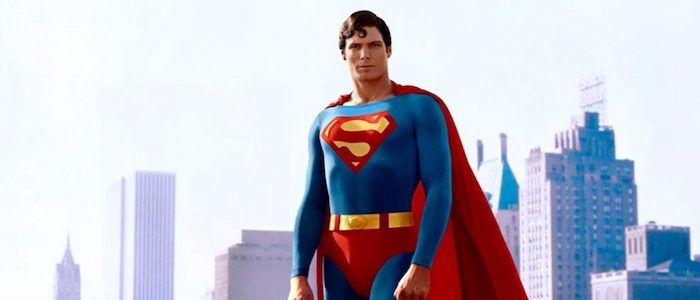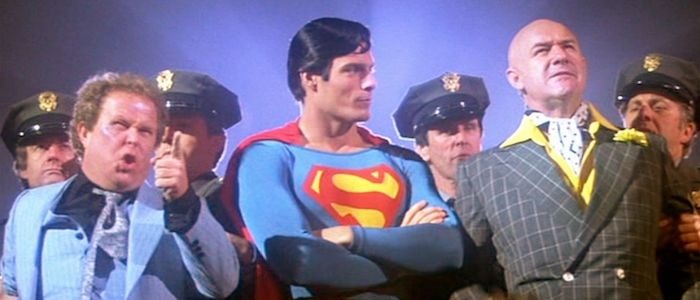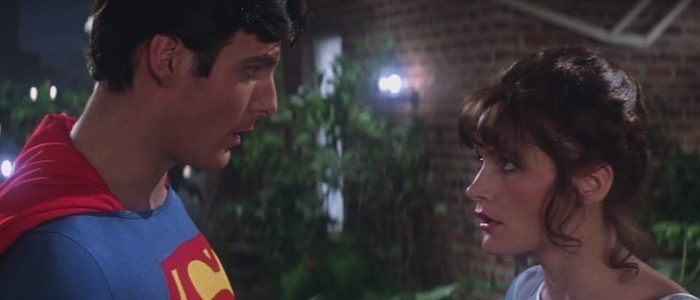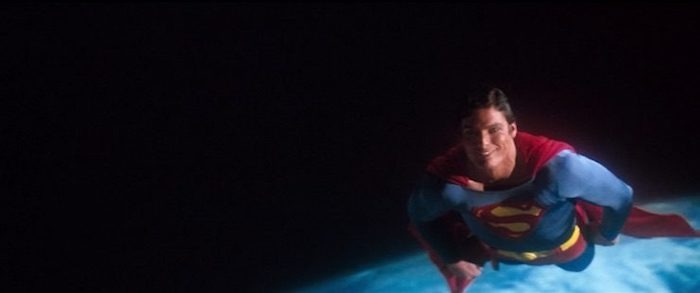Without Director Richard Donner And 'Superman,' We Wouldn't Have The Modern Blockbuster
It seems impossible to picture today, when superhero movies account for nearly half of the top 20 all-time box office earners, but it wasn't that long ago that the idea of a movie based off a comic book was laughed out of the room. And you can't really blame movie studios for that mindset back in the day, either. Comic book adaptations were firmly established in the TV world, going back to the great Richard Fleischer Superman cartoons, the George Reeves Superman show, Wonder Woman, The Incredible Hulk, and, of course, the Adam West Batman series. All those examples leaned heavily into the ridiculous, made explicitly for children without much consideration for the adults watching. Then director Richard Donner (who passed away yesterday at 91) showed up and laid the foundation for what would soon be a towering blockbuster skyscraper the likes of which the motion picture industry has never seen before. There had been comic book movies before Superman: The Movie, but it took that 1978 cultural event to reconfigure the mindset of the studios and the movie-going populace that comic book adaptations could be a tentpole experience.Donner pulled off a miracle, not just in fulfilling the promise of the film's tagline ("You'll believe a man can fly"), but in every conceivable avenue of adaptation.You have to put this film into the context of its time. Comic book movies were a joke. Donner cast an unknown lead. The studio was spending too much on it. Word of the difficult production got out immediately and the prevailing thought was that Superman was going to be the next Cleopatra – an expensive misfire.And despite all that, or maybe because of it, we got damn near a perfect film and quite possibly the most unsung influential blockbuster of the '70s. Jaws gets the credit for inventing the studio blockbuster and Star Wars rightfully holds the honor of being the single greatest pop culture phenomenon ever produced for the silver screen, but there's a good argument to be made that it was Superman: The Movie that had the most influence on the big budget studio picture. And Richard Donner is the man most responsible for that.

Superman (1978) Christopher Reeve
You'll Believe a Man Can Fly
The story goes that during development writer Mario Puzo turned in a 500-plus page draft that would encompass both Superman I and Superman II. David Newman and Robert Benton were brought in to shape Puzo's epic script into a more manageable length and they threw in a ton of camp, which was the flavor most associated with comic book adaptations at that time. When Donner came on board, he pretty much threw out all that came before and, according to the director himself, most of what you see in the finished product is the result of Tom Mankiewicz's "rewrite," even though he didn't get final screen credit.
The thing that most turned Donner off? The campy stuff, which notoriously included a scene where Telly Savalas would make a cameo as his lollipop-sucking Kojak character
That one decision by Donner, to step away from the camp of the Adam West Batman series or even the more adult-themed Barbarella (which was adapted from a French comic book), set the stage for the movie landscape we see today.Superman was a success on a million fronts. Practical effects had evolved to the point where we really did believe a man could fly. Donner's eye for casting landed the perfect Superman in Christopher Reeve. The extra money spent on Marlon Brando and Gene Hackman elevated the picture into the A-list. John Williams' rousing score might just be the single best movie theme in a half century. In short, it's one of the very few genuine lightning in a bottle movies. Everything lined up just right.
What Comes Next
Its critical, financial and creative success didn't immediately turn Hollywood into a superhero machine, I'd guess in large part due to Donner being screwed over on Superman II and exiting the comic book world for good. I still personally really like Superman II (both the theatrical cut and Donner's restored cut), but as those movies went on, the tentpole budgets dropped and so did audience interest.The lessons learned from Superman's success took a long while to take hold. In its wake we got Flash Gordon, which unquestionably rips, but once again took a step backwards into camp. It wasn't until 1989's Batman that comic book movies flared up again.Looking at the Tim Burton Batman with 2021 eyes, it feels pretty campy, with its exaggerated gothic influence, dutch angles and Jack Nicholson's over-the-top Joker performance. But I can tell you from personal experience that in the summer of 1989 that was most real shit we ever saw. Burton's Batman tonally felt right to the character. Just as Donner's film tonally felt right for that character.Superman was nostalgic, filmed with that milky haze you associate with flashbacks, but also set in a gritty, dirty big city. It could be goofy, but it also had real emotional stakes. The film was silly and sincere, which is perfectly what Superman was as a character at that time and what I believe is the most ideal version of the character.All respect to Zack Snyder for wanting to try something different with his version of the character, and I sincerely mean that, but Superman's at his most interesting when he's the Big Blue Boy Scout, and honestly, Donner's first Superman movie is the only one to get the character 100% right in my mind. While I have a lot of love for Superman II, the whole "giving up his powers" angle always rubbed me the wrong way. As a kid I didn't like it, but couldn't tell you why. As an adult really examining it I think it's because it's a selfish move. Kal-El deserves nice things and in a fair world he could live a long, happy life with Lois Lane, but the world isn't fair. Superman giving up his powers just when everybody needs him the most is, frankly, a dick move and goes against everything the first film set up for us. It's not a deconstruction or a character complication. It's a total misstep, a failure to understand the character they introduced.I didn't buy it then, I don't buy it now, but all that does is underline just how perfectly Donner got the character in his original film. Well, characters. Plural. Because that's another part of the genius of the 1978 original. Not only is Reeve perfect as Kal-El, he's also perfect as Clark Kent, who are two very different characters.
A Tale of Two Performances
This is underlined in one extended sequence in the film, where Lois interviews Superman on her balcony. That interview scene is flirty, fun and is so natural it's almost as if it's a scene from a Robert Altman movie. We'll skip over the "Can You Read My Mind" scene, which I'll still defend as being a crucial component to Superman and Lois' meet-cute (it's essentially a sex scene without the sex), but what I really want to point out is what happens immediately afterwards.Superman brings Lois back to her patio and in one shot he wishes her farewell and flies off and then reappears as Clark Kent at her door. This was a trick pulled off with a rear-screen projection of a previously filmed Reeve in his Superman suit flying off and the live in-person Reeve as Clark at the door, but it's not just the technical trickery that makes this scene stand out. It's what Reeve does when he's let in.Clark is his usual stuttering, bumbling self and as Lois is getting ready to head out with him, he has an internal debate about revealing himself as Superman to her. He almost does it and chickens out. That scene is my favorite special effect in the movie and it's just Reeve using body language to transform from his hunched over, meek and nervous Clark Kent persona into the confident form of Superman.
I don't know if I'd take away any credit from Reeve (or Margot Kidder for that matter) in this scene, but it is telling that there's nothing that has matched that one sequence in any other single Superman movie as both nailing the characters of Clark Kent and Superman and the tone in which he's surrounded. Even if it's only partial credit, Donner has to get some love for this.
Ripple Effects
And that brings me to today. Obviously the MCU, the Christopher Nolan Batman films and DCEU wouldn't exist without the success of Sam Raimi's Spider-Man series and the X-Men films (which were produced by Richard Donner's wife, Lauren Shuler Donner). Those in turn owe a little debt to Blade for proving that comic book movies aren't just one narrow thing and that in turn owes a bit to Burton's Batman which itself wouldn't have been made without Donner's Superman. It all traces back to Donner's film. If you rewatch Iron Man, you'll notice it spends way less time on thrills and huge budget set pieces and more on building the character of Tony Stark with a compelling and funny lead actor. The tone is a little more real world (I couldn't imagine Iron Man starting off with a kid reading an Iron Man comic, for instance), but the attention to character detail is clearly influenced by Donner's Superman.And that's just the creative through line. On a boring behind-the-scenes bean-counting level, none of what we've gotten post-Superman would have been possible without that movie being a hit. That's just how Hollywood works. Superman proved that comic books could be translated to the big screen and that if it was done right, the audience would be there. As usual, it took a long while for the studio system to figure out why Superman: The Movie worked, but everything we see around us today can be traced back to that film, and that film owes its success in large part to Richard Donner's direction.Without Donner steering that ship I'm sure it would still have been good, or at the very least interesting, but it certainly wouldn't have been the phenomenon it was. It was the first time superhero movies turned away from camp and that was the secret that unlocked all future comic book movie adaptations.So, Jaws is probably the most important blockbuster of all time because it set the template for how studios released their big films. But take one look around the big studio landscape today and it's clear that Richard Donner's Superman: The Movie remains the most influential blockbuster of that era.



